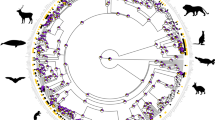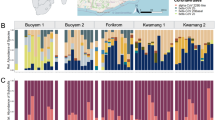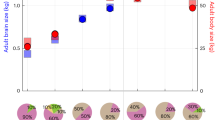Abstract
BROOD parasites and their hosts are thought to engage in a revolutionary arms race in which parasitism selects for adaptive defences by the host (such as egg rejection), which in turn select for counter-adaptations by the parasite (such as egg mimicry)1,2. Soler and Mø11er have tested whether the duration of coevolution (measured by the duration of sympatry at three different geo-graphic areas) in a host–cuckoo system affected egg-rejection behaviour by hosts3. They found that the extent of both rejection and recognition of parasitic eggs covaried positively with the duration of sympatry. Here we show that, in the absence of strong historical evidence, field data do not support the existence of variations in the duration of sympatry at the two areas where the distributional ranges of the cuckoo and its hosts overlap. The reported differences in egg rejection by hosts might alternatively reflect flexible behavioural responses to the presence of the adult parasite near the nest.
This is a preview of subscription content, access via your institution
Access options
Subscribe to this journal
Receive 51 print issues and online access
$199.00 per year
only $3.90 per issue
Buy this article
- Purchase on Springer Link
- Instant access to full article PDF
Prices may be subject to local taxes which are calculated during checkout
Similar content being viewed by others
References
Davies, N. B. & Brooke, M. de L. Anim. Behav. 36, 262–284 (1988).
Rothstein, S. I. A. Rev. Ecol. Syst. 21, 481–508 (1990).
Soler, M. & Møller, A. P. Nature 343, 748–750 (1990).
Davies, N. B. & Brooke, M. de L. J. Anim. Ecol. 58, 207–236 (1989).
Alvarez, F., Arias de Reyna, L. & Segura, M. Anim. Behav. 24, 907–916 (1976).
Brooke, M. de L. & Davies, N. Nature 335, 630–632 (1988).
Moksnes, A. & Røskaft, E. Behavl Ecol. Sociobiol. 24, 25–30 (1989).
Soler, M. Ornis Scand. 21, 212–223 (1990).
Archer, G. F. & Godman, E. M. The Birds of British Somaliland and the Gulf of Aden (Oliver and Boyd, Edinburgh, 1961).
Sanchez Garcia, J. Catálogo de los mamiferos y aves observados en la provincia de Granada (Real Sociedad Económica de Granada, Granada, 1885).
Briskie, J. V., Sealy, S. G. & Hobson, K. A. Evolution 46, 334–340 (1992).
Brown, R. J., Brown, M. N., Brooke, M. de L. & Davies, N. B. Ibis 132, 109–111 (1990).
Author information
Authors and Affiliations
Rights and permissions
About this article
Cite this article
Zuñiga, J., Redondo, T. No evidence for variable duration of sympatry between the great spotted cuckoo and its magpie host. Nature 359, 410–411 (1992). https://doi.org/10.1038/359410a0
Received:
Accepted:
Issue Date:
DOI: https://doi.org/10.1038/359410a0
This article is cited by
Comments
By submitting a comment you agree to abide by our Terms and Community Guidelines. If you find something abusive or that does not comply with our terms or guidelines please flag it as inappropriate.



